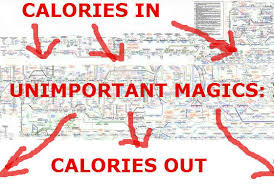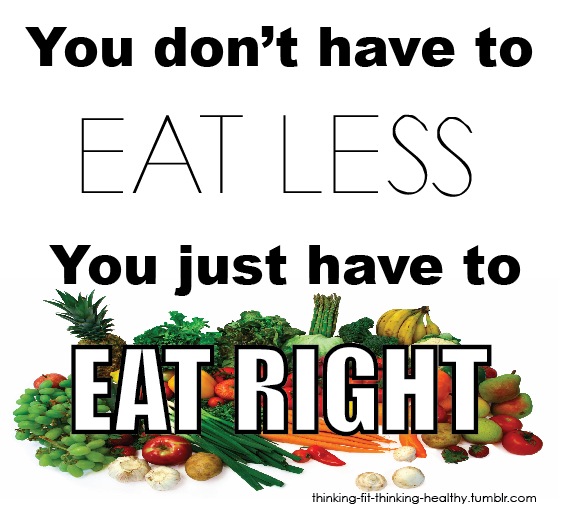There are so many weight loss and body composition programs currently on the market. Generally they have a common thread and that revolves around calorie counting and more often than not, calorie restriction. It’s time to free yourself from these constraints and fully understand why calorie counting is not the answer for long term health. Nor is it necessary when you adopt a real food lifestyle.
Firstly, let’s examine the history of the Calorie and what this term actually means. The first reference to the Calorie was by Nicholas Clémentin, a French physicist in 1819 and it wasn’t in context with food (Hargrove, J. 2006). Nicholas lectured at a Paris university on the topic of the thermodynamics of steam in relation to powering engines. From this, understand that the Calorie is simply a unit of measurement in the metric system used to describe the amount of heat needed to raise the temperature of 1 kg of water by 1 degree. Fast forward to 1960 and the Calorie become an integral measurement of food energy. Today you can’t turn around in a coffee shop without hearing someone say “I wonder how many calories are in that!?”
In terms of food, the Calorie is now used to describe the amount of energy a person will obtain from that food. Carbohydrates are recognised as containing 4 calories per gram and the same for protein; fat has been vilified because it contains more than double the calories at 9 per gram. What’s interesting is how these numbers were determined in the first place. Many decades ago, a food source was placed in a sealed contained and filled with water. The food source was then burned with electrical energy until it was completely gone and scientists measured the temperature of the surrounding water to determine how many degrees it had risen. The above results were determined in this manner and today every single food lists the number of Calories per serving. Popular diet plans are built around a daily Calorie allowance and exercise machines measure the amount of Calories burned in a session.
Let’s take a step back for a moment. Over 150 years ago, Calories were used in the context of powering engines…. Later food was burnt in a chamber and assigned a magic number….. Today, I can’t go out for coffee with my girlfriends without them stressing about going over their daily calorie allowance?
I know this is harsh, but I am really trying to get a point across here. To be really honest and fair, I do see that there is some place for Calories as a unit of measurement for food energy, but the current compulsion to count calories in and calories out is simply not working. Plus, Calorie counting in isolation teaches people absolutely nothing about food! Finally, other factors need to be considered as well. Here are a few reasons why:
- Calories are not a measurement for nutrition. Two foods may have precisely the
same number of calories but they will have completely different micronutrients. Micronutrients refer to substances that are essential for life and include vitamins and minerals such as iron, calcium, folate, antioxidants and phytonutrients. Furthermore, both fats and protein tend to provide far more micronutrients than carbohydrates. These foods are more ‘nutrient dense.’
- Calories disregard satiety completely. Satiety is a concept referring to being ‘satisfied’ following a meal. A meal that is mostly comprised of carbohydrates will yield very little satiety and result in a blood sugar rollercoaster effect (this has its own problems that I won’t go into here). A different meal with the exact same number of Calories from less carbohydrates but including some protein and fats will yield far great satiety. This means that the consumer feels fuller for longer and is less likely to reach for a sugary snack in just a few hours’ time.
- Calorie counting does nothing to educate consumers about good food choices and may result in a very poor diet. Take a large orange as an example, which contains about 80 Calories. A fun sized Mars bar ironically contains the same number of Calories. Are the two equal? Certainly not. Should a fun size Mars bar be a regular feature in the diet of someone needing to lose weight or improve their health in other ways? No. An orange on the other hand, may be a suitable option. Similarly, a 2000 calorie diet containing soft drink, chocolate bars, pasta and take away is completely different from a 2000 calorie diet built around good quality meat, vegetables, fruit, nuts, seeds and unrefined carbohydrates.
Within the context of a well formulated real food lifestyle, calorie counting is largely unnecessary. Remember there are many different variations of real food living, however they are all built on a common foundation. This foundation calls for a reduction in refined carbohydrates and eating foods in their most unrefined state. In their unrefined state, foods naturally contain more protein and fat. To simplify this foundation even further? Just. Eat. Real. Food (JERF). When people turn back to real food, several things happen:
- We get greater satiety, meaning we are fuller for longer. Personally I find eating fewer meals in a day far more convenient than consuming 5-7 as some diets recommend. Calorie counting is not needed because instead, your own body will signal when it needs its next meal. This is because real food sources contain more good fats and protein. The highly processed ‘carbage’ is gone (thanks Jimmy Moore for this term, I love it.). Often there is a natural reduction in Calorie intake anyhow, with this style of eating because people simply feel satisfied instead of waiting ravenously for each meal.
- We get more consistent energy levels. Again, this is due to the increased fat in the diet and the reduction in highly refined carbohydrates. Instead of a blood glucose / insulin rollercoaster rider (which is a stressful and inflammatory process), we get sustained energy from food benefiting both mental and physical performance.
- We naturally get more micronutrients in the diet. As previously stated, highly refined carbohydrates offer little in terms of nutrition. The real nutrients are in protein, good fats, fruits, vegetables and less refined grains.
- Other pro inflammatory substances such as gluten, refined sugar, Trans fats and preservatives are largely eliminated from a well formulated real food lifestyle. This has enormous benefits to digestion, gut health and in the management of chronic disease.
- Finally, 1 of my favourites. Real food tells you when enough is enough. Consider the Mars bar and the orange. Are you going to stop at 1 little bite sized morsel of a Mars Bar? Probably not. On the other hand is one large orange likely to turn into 2 or 3? Doubt it. Let me tell you food manufacturers are smart! They know exactly what to put into their products to keep you coming back over and over and over again.
So in summary, real food living means greater satiety, more nutrients, less carbage and intuitive eating. On the other hand, a typical calorie counting diet involves kitchen scales, calculators, ‘lite’ processed foods and an enormous amount of stress. Please don’t jump up and down and attack me over this article – I know many people have lost weight counting calories. BUT my point is – long term, its a no go. And nutrition is far more important than heat energy content. Plus, I know which lifestyle I’d prefer.
(A note for the chemists out there: I understand that the true calorie describes the amount of heat needed to raise the temperature of 1gof water by 1 degree and what I am actually speaking of is technically a kilocalorie. However, the kilocalorie is largely accepted to be called a Calorie in the context of nutrition and this article is intended to simplify this information for the general public so that they may benefit from it.)
Reference: Hargrove, J. 2006 History of the Calorie in Nutrition, JN Journal of Nutrition, retrieved 29th April 2015 available from http://jn.nutrition.org/content/136/12/2957.full


 same number of calories but they will have completely different micronutrients. Micronutrients refer to substances that are essential for life and include vitamins and minerals such as iron, calcium, folate, antioxidants and phytonutrients. Furthermore, both fats and protein tend to provide far more micronutrients than carbohydrates. These foods are more ‘nutrient dense.’
same number of calories but they will have completely different micronutrients. Micronutrients refer to substances that are essential for life and include vitamins and minerals such as iron, calcium, folate, antioxidants and phytonutrients. Furthermore, both fats and protein tend to provide far more micronutrients than carbohydrates. These foods are more ‘nutrient dense.’